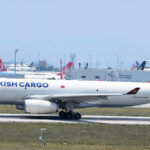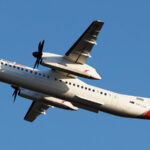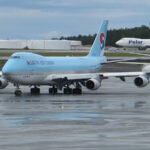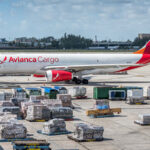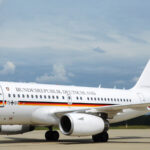The COVID-19 pandemic has had an unprecedented impact worldwide, but it has also demonstrated the crucial importance of air cargo transportation during times of crisis. For months, news reports featured cargo planes carrying COVID-19 vaccines to every corner of the globe: cargo aviation brought good news and marked the beginning of the end of the pandemic
Vaccines: Hope in the Pandemic
The race to develop and distribute effective COVID-19 vaccines has been one of the most urgent priorities since the onset of the disease. These vaccines, despite the controversies they sparked, represented hope for ending the pandemic and returning to a more normal way of life.
This translated into scientific, medical, economic, and even geopolitical debates, resulting in a dozen vaccines that began to be distributed a year after the virus first appeared.
However, there was another challenge: the distribution of COVID vaccines. The need for shipments worldwide and at an unprecedented speed presented significant logistical challenges. This is where air transportation played a crucial role.
Air Transport and Vaccines
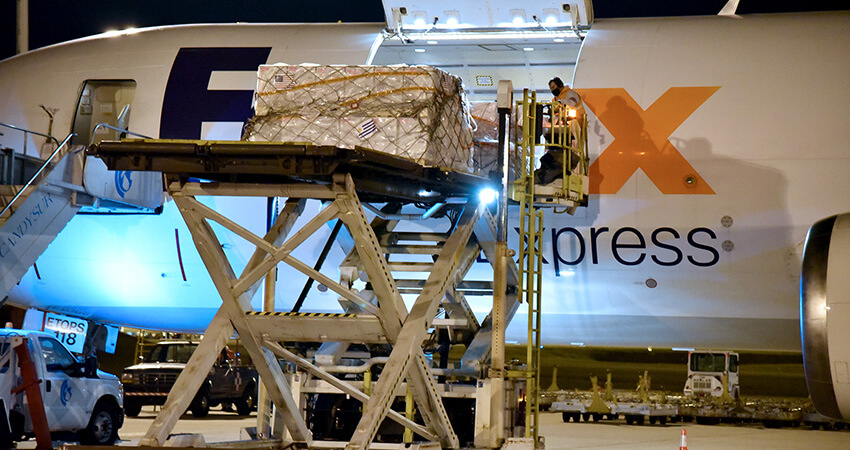
While the air transport of medicines is common, the challenge of transporting so many vaccines in such a short time was unprecedented. This required enormous coordination. However, cargo planes offered advantages that no other mode of transportation could provide.
The first point is the speed and efficiency of air transport. This mode of transportation is the fastest and most efficient option for shipping COVID-19 vaccines and any medication globally. Instead of weeks or months by sea, they could reach their destination within hours.
Another element that cargo planes could guarantee is preservation. Some COVID-19 vaccines, such as the Pfizer-BioNTech vaccine, require storage at extremely low temperatures. Air transportation allowed the distribution of these vaccines to distant locations, even in regions with limited cold chain infrastructure, while ensuring their preservation.
In this sense, air transport facilitated the delivery of vaccines and medications to remote or hard-to-reach areas. Unlike maritime transport, airplanes can reach continental areas that would otherwise require a lot of time and effort. Additionally, transporting these cargoes by trucks would be highly inefficient from both an economic and environmental perspective.
Logistical Challenges
It might seem easy: a plane is loaded, it reaches its destination, vaccines are distributed. It may even have been just a detail in our memory of such a challenging situation as the COVID-19 pandemic. However, the logistical challenges were immense.
To begin with, ensuring safety and the cold chain during air transportation was critical. Cargo planes and cargo facilities at airports had to adapt to meet pharmaceutical product handling standards, especially because many of these vaccines had very specific requirements for extremely low temperatures
Furthermore, global coordination was required. From governments to pharmaceutical companies, international organizations, air transportation companies, and vaccine factories, everyone had to be coordinated. It was crucial to ensure processes that were efficient and, above all, fast.
On the other hand, despite the decline in cargo transportation during the pandemic, the high demand for vaccine transportation also meant prioritizing their shipments. This sometimes occurred at the expense of other types of cargo, which required a great deal of coordination to avoid harming other air cargo customers. This led to some airlines adapting passenger planes for this cargo almost improvisationally.
The Expertise of the Air Cargo Industry
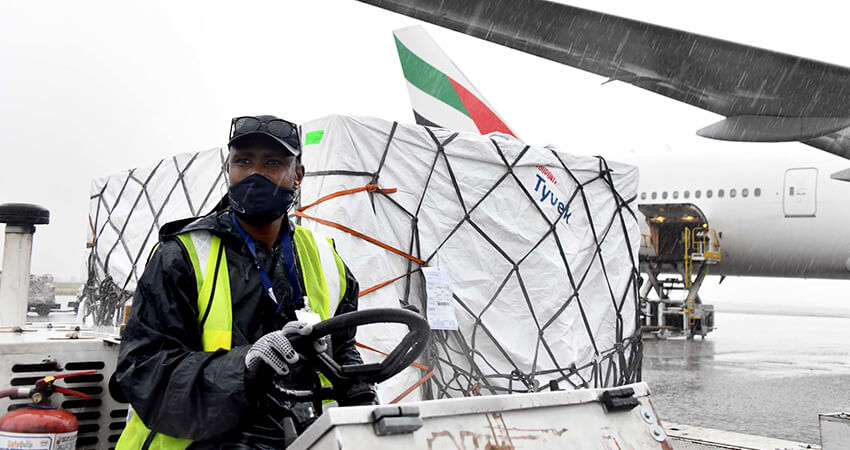
All of this would have been impossible without a sector with strong organization and extensive knowledge of how to handle such processes. Although the challenges were enormous and there were significant debates about immunizations in many countries, they were not related to the airplanes. On the contrary, the knowledge of air medicine transportation was essential for the distribution of COVID vaccines.
Indeed, airport infrastructure and, especially, the logistical expertise of air transportation companies rose to the occasion for one of the most significant challenges for humanity in the last century.
This industry demonstrated, and continues to demonstrate, that it is pivotal in the distribution of medicines and vaccines worldwide. The efficiency and speed of air transport transformed it into not only a means of transporting goods but also a source of hope for millions of people worldwide.

